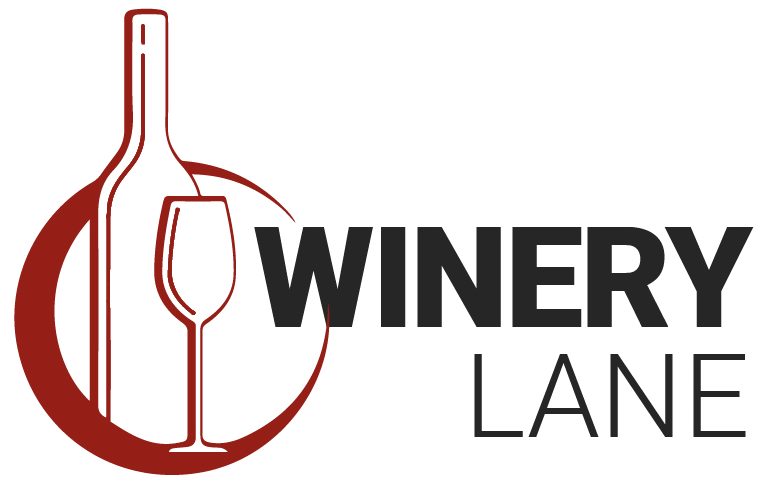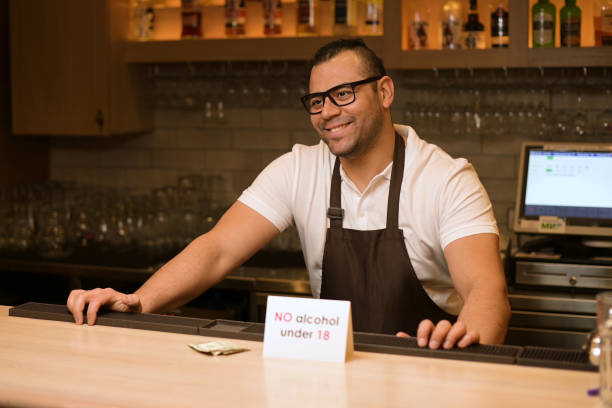How to apply for a Liquor Licence
Here’s a list of steps to help you apply for a license. You’ll want to know these requirements if you plan on starting your bar.
- Find out your state’s alcohol laws.
Each state has specific laws regarding the sale, distribution, and consumption of alcohol. The first step to obtaining a liquor license is to determine your state’s alcohol law. Each state has an Alcoholic Beverage Control Agency (ABC), which is the ruling body for all alcohol-related rules. Many counties and cities set up standards and requirements to accompany state laws.
What is a liquor license?
A liquor license is a type of permit that allows you to manufacture, distribute, and sell alcohol in your business. It also regulates many aspects of how, when, and where you can sell alcohol. These are a few of the legalities covered by a liquor license:
- Who can buy alcohol?
- When and where can businesses sell alcohol?
- Alcohol types that are available for sale
- What containers can alcohol be served in, and how much can it be sold?
- When and where alcohol can be sold or served to go
- If businesses can manufacture, distribute, and sell alcohol or any combination thereof
- Alcohol prices are rising
- Taxes and quotas on liquor licenses
What is a dry county?
In a dry district, local authorities prohibit all alcohol sales, irrespective of state law. Kansas, Oklahoma, Texas, Arkansas, Mississippi, Tennessee, and Kentucky are some of the U.S. states with dry counties. On the other hand, conditions such as North Carolina, Ohio, and Michigan have “mixed counties” that regulate the sale of alcohol but not the consumption on premises. Before you start, make sure your township or local county has been zoned to allow the sale of alcohol.
- Liquor License Quota States
Some states issue an unlimited number of liquor licenses, while others have a quota. The laws of each state are constantly changing, so it’s important to keep up with the latest changes. Consider hiring a lawyer who specializes in alcohol laws. The following states will be considered “quota states” as of 2023:
- Alaska
- Arizona
- Florida
- Idaho
- Kentucky
- Massachusetts
- Michigan
- Minnesota
- Montana
- New Jersey
- New Mexico
- Ohio
- Pennsylvania
- South Dakota
- Utah
- Washington
Why do liquor license quotas exist?
In most states that have quotas in place, the population of a particular locality determines how many licenses are available. The number of permits generally increases as an area grows in population. The quotas vary from state to state. Check with the ABC agency in your state to find out how strict the percentage is. This will affect the price and availability of licenses. Liquor licenses are more affordable in states without quotas. In quota states, bars and restaurants can pay as much as $300,000 to get a new liquor license.
- Find out if your state requires a specific class of liquor license.
It is important to note that there are no universal liquor licenses. Some states require a more specific type of license. You’ll need to determine whether you require an off-license or on-license. You’ll need an on-license if you plan to sell alcohol that will be consumed in the establishment (such as bars, restaurants, and nightclubs). Bottle shops, liquor stores, and other retail locations that sell alcohol but consume it off-premises need an off-license.
What are the different types of liquor licenses?
Some states do not require specific license classes, but others do. Licenses are named differently in each state. Sometimes, an alphabetic code is assigned to identify what type of license it is. A restaurant license in Pennsylvania, for example, is known as an (R). In Florida, a liquor license that allows restaurants to serve all types of alcohol is known as a 4COP license. For the most current list of licenses, contact your state’s alcohol control board. This is a list of common liquor license types.
- Arts licenses are designed for places like theaters and art galleries to serve alcohol during events.
- Beer and wine licenses are given to smaller businesses that only sell beer and wine.
- Brewpub licenses may be necessary for establishments that plan to make their beer or wine. Depending on your state, you may be issued an alternating premises license, which requires you to make alcohol at certain times and serve it at other times.
- Club licenses allow private social clubs to serve alcohol to their members. While some states only permit the service of beer and wine, others enable clubs to serve liquor.
- Delivery licenses allow companies to deliver sealed containers of alcohol to customers.
- Eating place licenses are given to carry out businesses like Delis that serve food but also sell small amounts of take-out beer. These licenses usually restrict the amount of alcohol that may be sold to one customer.
- Hotel licenses are issued to hotels with bars and restaurants that serve alcohol.
- Restaurant licenses are also referred to as “all-liquor licenses” and allow a business to serve any alcohol. However, some states do require that only around 40% of the establishment’s total earnings may come from the sale of alcohol.
- Retail licenses are issued to grocery stores, convenience stores, liquor stores, and any other retail establishments that sell alcohol.
- Tavern licenses are required if a business serves food but makes at least 50% of its total sales from alcohol.
- Temporary liquor licenses are required for caterers that serve alcohol at events. These are also called one-day licenses.
Note that Licenses may be required by Bring Your Bottle (BYOB) establishments. However, this process can vary from state to state.
- Back to How to Prepare for the Submission of a Liquor License Request.
You’re now ready to apply for a liquor license. You’ll first need to contact the ABC agency in your state to find out where to get the forms. Ask the local agency about these questions, as regulations differ by location.
- What type(s) of license(s), if any, are required?
- What should you expect to spend on your support?
- Do you have any appointments available in your town or county (if you are in a quota state)?
- If you live in an area with quotas, are there any businesses in your region looking to sell?
What documents are required to apply for a liquor license?
The most important documents you should have on hand are:
- Employer ID number from the IRS
- Zoning permit from your local zoning commission
- Business license from your local government
- Sales tax permit from your state’s website
- Alcohol tax permit from your state’s business taxation department
- Food handler’s passport (if applicable) from your state health commission
- Building permit from your local zoning commission
- Signage permit from your local zoning commission
- Health permit from your state health commission
- Music license (if you’ll be playing copyrighted music) from online licensing companies
Note: Be sure to pay any outstanding taxes or fees before you apply for your liquor license. If you fail to comply, it can affect your chances of getting a liquor license.
What other documents should you have ready when applying for a liquor license?
You may also need to submit:
- Exterior photos of your building
- The floor plan of the building’s interior
- Your building title
- Your code compliance certificate
- Your certificate of incorporation
- Your company’s constitution
- Your partnership agreement (if applicable).
- Please provide details about your age and previous business experience
- What is the cost of a liquor license?
Variables like the state in which you operate, your license class, and your quota will affect the cost of an alcohol license. A liquor license in one county could cost hundreds of thousands. In another country, the price could be as low as $125. Contacting your ABC agency is the best way to find out your total cost of a liquor license. In some cases, you may need to obtain a liquor license from all four levels – federally, stately, county, and local – which can incur additional costs.
What is an alcohol control state?
In states under control, the state government controls alcohol sales to varying degrees. In some control states, liquor (and wine in some cases) must only be sold by state-owned stores and not at privately owned businesses. Some control states allow the sale of alcohol in privately owned stores, but they still set minimum prices for wholesalers and distributors.
What is Liquor Privatization?
Privatization of liquor puts control over sales and distribution in the private sector. State governments can increase revenue by preventing privatization and maintaining control over liquor sales within the public sector.
According to the National Alcohol Beverage Control Association, 18 jurisdictions have control over alcohol in the U.S.
- Alabama
- Idaho
- Iowa
- Maine
- Michigan
- Mississippi
- Montana
- Montgomery County Maryland
- New Hampshire
- North Carolina
- Ohio
- Oregon
- Pennsylvania
- Utah
- Vermont
- Virginia
- West Virginia
- Wyoming
How to submit your application for a liquor license
After you have gathered the necessary documents, you can submit your application for an alcohol license. Most states allow you to fill out all the required forms by visiting their website. You’ll usually have to pay an additional $50-$100 non-refundable processing fee. You might even have to submit to a background investigation and fingerprinting.
Do you need to defend your liquor license application?
Once you’ve submitted your application for a liquor license, a notice will be posted at your business that lists your name, the kind of license you’re applying for, and what you’ll be selling. While this notice is posted, anyone from your local community may contest your application. If this occurs, you may be required to defend your proposal at a public hearing before you are awarded your license. If no objections are presented, your local government will review your application and (hopefully) grant you your liquor license.
How can you avoid losing your liquor license?
You’ll have to keep your liquor license current once you obtain it. You will be required to renew your liquor license (depending on the local laws) every one to three years in most states. This renewal also includes a fee. You may qualify for a lower price if you are in good standing with the local ABC agency.
Your liquor license may be revoked if you violate any of the ABC rules in your state. Common violations include:
- Failure to check I.D.s
- Alcohol sales to minors
- Overserving customers
- After-shift drinking by employees
Back to top alcoholic Beverage Control Agency by State
This list includes all fifty states plus the District of Columbia and the websites for each state’s ABC agencies:
- Alabama ABC Licensing Information
- Alaska Alcohol & Marijuana Control Office
- Arizona Department of Liquor
- Arkansas Alcoholic Beverage Control
- California Alcoholic Beverage Control
- Colorado Liquor Licenses
- Connecticut Liquor Control Division
- Delaware Office of ABC
- Florida Division of Alcohol & Tobacco
- Georgia Alcohol Licensing
- Honolulu Liquor Commission
- Idaho State Liquor Division
- Illinois Liquor Control Commission
- Indiana Alcohol & Tobacco Commission
- Iowa Alcoholic Beverages Division
- Kansas ABC Licensing
- Kentucky Alcoholic Beverage Control
- Louisiana Alcohol & Tobacco Control
- Maine Alcohol & Lottery Operations
- Maryland Liquor Licensing Renewals and Transfers
- Massachusetts Alcoholic Beverages Control Commission
- Michigan Department of Licensing & Regulatory Affairs
- Minnesota Alcohol & Gambling Enforcement
- Mississippi Alcoholic Beverage Control
- Missouri Alcohol & Tobacco Control
- Montana Liquor Control
- Nebraska Liquor Control Commission
- Nevada Alcoholic Beverage Control
- New Hampshire Liquor Commission
- New Jersey ABC Licensing Bureau
- New Mexico Alcohol & Gaming
- New York State Liquor Authority
- North Carolina ABC Commission
- North Dakota Alcoholic Beverage Licence
- Ohio Department of Commerce
- Oklahoma ABLE Commission
- Oregon Liquor Licensing
- Pennsylvania Liquor Control Board
- Rhode Island Liquor Enforcement
- South Carolina Alcoholic Beverage Licensing
- South Dakota Alcohol Licenses
- Tennessee Alcoholic Beverage Commission
- Texas Liquor License
- Utah Department of Alcoholic Beverage Control
- Virginia Department of Alcoholic Beverage Control
- Vermont Department of Liquor Control
- Washington, D.C. Alcoholic Beverage Regulation
- West Virginia Alcohol Beverage Control Administration
- Wisconsin Alcohol Beverage Laws for Retailers
- Wyoming Liquor Division




